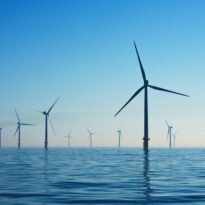Companies are making progress towards net zero, but their progress is slower than expected, says Fidelity International.
According to the Fidelity ESG Analyst Survey, Europe continues to win the race to net zero, with the highest proportion of companies recognised as “leading the charge” by Fidelity’s analysts. In contrast, China has the smallest number of companies leading the charge, although more than half of Chinese companies are starting to change.
Fiona O’Neill, head of strategic initiatives, global investment research at Fidelity International, said: “This year’s survey has found tangible signs of corporate progress towards net zero, despite the impact of the war in Ukraine, and an increase in the immediate demand for substitute fossil fuels, including coal, to alleviate higher prices.
“The positive trajectory of China’s transition shows that Chinese companies are responding positively to increasing investor awareness and top-down cues after Beijing’s 2020 announcement that it is targeting net zero by 2060.”
However, O’Neill said many businesses are still early in their ESG journey and progress is slower than Fidelity would have hoped for.
The survey also found that analysts see more opportunity than risk from the green transition, especially over the long term. Japan stands out, with analysts noting significant opportunities across the auto industry, consumer staples and semiconductors.
O’Neill commented: “A key theme we are watching is that of a ‘just transition’. This is the idea that the move to a greener economy risks adversely impacting some individuals and communities, such as those working in the fossil fuel industry, and that efforts should be made to mitigate such risks.
“Our analysts see signs of incremental progress, with a greater proportion of businesses having announced initiatives to promote a just transition by supporting displaced employees.”
Fidelity International said companies are not just noticing change across greenhouse gas emissions, but across social topics including employee welfare and diversity.
O’Neill added: “After the disruptions of the past year, supply chains are in focus, especially labour concerns, which showed the largest increase in mentions by the analysts. But the natural world is a key concern and, from a low base, biodiversity features in 26% of analysts’ conversations, with our team expecting that to rise in the year ahead.”
[Main image: palle-knudsen-pn32OsMWfHQ-unsplash]



































